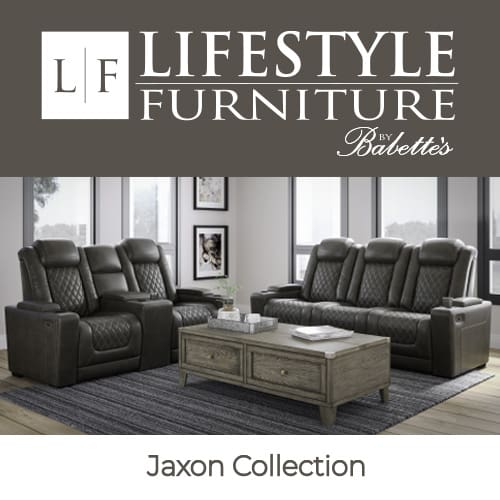By Leigh Neely
Technology, Better, Faster, smaller
The only constant in the world is change, and with technology, that happens daily, almost hourly. But whether you adapt or not, it’s still going to change.
If you say the words “transistor radio” to your grandchildren, you will no doubt get blank stares. Show them the incredible plastic device, that still works, and they will be even more amazed. Radio is just one of the many technologies the GI Generation (born 1901-1926) has watched get smaller and easier to use.
English physicist Stephen Hawking says, “Intelligence is the ability to adapt to change.” This statement rings true for every generation. Those who express the most resistance to change too often spend much of their lives in an unhappy state.
During the lifetime of baby boomers, the world has changed in ways that were completely unexpected. The science that took man to the moon paved the way for the electronic devices now enjoyed in homes, cars, and places like public restrooms. (What? You think it’s magic that you wave your hand in front of the paper towel holder and it automatically comes out?)
The breakthroughs in medicine alone have made life so much better. There was a time when gallbladder surgery was an extremely painful process that took weeks of healing. Now, thanks to advances in technology, laparoscopic cholecystectomy (gall bladder removal) is done with small incisions and recovery time is minimal.
When “Ma Bell,” as the telephone company was affectionately called in the late ’60s, decided to move to computer technology (Traffic Service Position System) for making long-distance phone calls without an operator, the computer was in a room the size of a gymnasium and the generator for use when the power went out was a jet engine.
My, how things have changed.
The list could go on and on…and on, and the GI Generation, the Mature/Silent Generation, and baby boomers would recall all the changes. Some will smile and remember the change with gratitude; others will grumble and mumble about the “good old days.”
Last year, Link·age Connect and Aging in Place Technology Watch teamed up for a technology survey. There have been many studies and surveys similar to this, but what made this one different was they polled 401 people, ages 59 to 85+. Most studies only go to 65+. This study has provided the clearest perspective of the aging population and how it views technology.
Among the findings was during the past 15 years, 50 percent of people over the age of 75 say they go online. That’s up 93 percent from a study done in 2000. However, there are still those who avoid technology because they believe “big brother is watching,” and they’re not referring to the popular TV reality show. Others sincerely feel technology is good but also frightening because of its complexity.
Art Feen is the facilitator of The Villages iPad Club and vice president of The Villages Computer Club. These clubs have hundreds of members who attend to learn the basics or to understand the latest upgrades in their equipment. Art says they send emails to about 2,500 people every month to give them details about meetings, and generally there are anywhere from 150 to 300 people at the meetings.
“We usually have two to three presenters that talk about topics they’re skilled in,” Art says. “We even have a couple of guys who only attend during the winter months that speak, too. They pick the topics, and we make sure it’s always something different.”
With the iPad group, Art says he talks most often about the different apps and how to use them. They always have big groups when the system updates. “When there’s an upgrade, a lot of people don’t want to do it. As always, some people just don’t want to change. They have everything set up like they want it, and they want to keep it that way.”
Following the monthly meetings, members can have one-on-one sessions with the experts in the group, and Art always meets with those who want to learn the basics of working with their tablet. They also have experts for those who use Android or other tablets. No one is left out.
“This is about as far as I can get from what I did,” Art says with a laugh. “I worked in agriculture for 35 years, but I really enjoy using my iPad, and when other people came to me with questions at the computer club meetings, I realized there was a need for an iPad club, too.”
Technology continues to find its way into the lives of senior adults in more ways than one. An interesting point from this study is that Aging in Place Technology Watch is a market research group that focuses on providing guidance about technologies and services to allow older adults to stay in their homes longer.
Electronic help systems have been around for years. A device is worn around the neck that makes it easier for elders to call for help when they’ve fallen or become ill. This has not only been a boon for the elderly, but it helps family members feel more secure when the parent or other relative wants to continue living at home alone.
Another popular robotic device in assisted-living facilities and nursing homes is robotic stuffed animals. They are soft, respond to touch by purring or barking, and move around like a live pet.
Of course, the downside of any technology is the prevalence of scammers. Elderly people seem to be among the easiest victims because they willingly give out private information, thinking the person on the phone is from their bank or credit card company. Family members must constantly caution elderly people to avoid giving out Social Security numbers or credit card information. If you feel it’s truly your bank contacting you, ask for a number to call back. Hang up and call your bank personally to see if someone has attempted to contact you. If not, share the number you were given so they can give it to the bank fraud department.
Q&A Villagers and Technology
What do you think of the technological changes in your lifetime?
“I used to be a computer operator when we used those punched cards. I worked on a computer for the St. Louis Police Department. I worked on computers for 45 years for the State Retirement System of Colorado. I just have a laptop now, and I do email and use Excel some. I tell you, those hackers are sick people.”
Tom and Jean McLaughlin, Village of Sabal Chase
“I started with Wisconsin Bell in Milwaukee installing computers. I was a field operations manager putting in computers for office buildings and then I worked with Voice Over IP. I moved to American Family Insurance Company, where I set up agents’ offices with computers.”
Allen Kuks, Village of Mallory Square
“Too many buttons to push. Push this. Push that. Gotta keep it simple. I don’t even own a computer. All I have is this (holds up dated flip phone).”
J.B. Heaton, Village of Charlotte
“Computers are good, but they’re tough to keep up with. My wife has a desktop, two laptops, an Android, and an iPad. My stuff is older than hers because I get the hand-me-downs.”
Jan Schmeichel, Village of Springdale
“As long as I can get into my account, and I’m not hacked, I’m happy with my computer.”
Jeannie Balok, Village of Santiago
“I love having easy access at the tip of my finger. Technology is great. I am very worried about all the hacking and the safety of computers. My son works in internet security, and they’re working on it constantly. They even go to hacking conventions in Las Vegas so they can learn how the hackers do it. My other son is an exceptional user of technology.”
Laura Salter, Village of Alhambra
Leigh Neely began her writing career with a weekly newspaper in the Florida panhandle, where she not only did the writing, but delivered the papers to the post office and dispensers. She has been writing ever since for a variety of newspapers and magazines from New Jersey to Leesburg. With her writing partner, Jan Powell, Leigh has published two novels as Neely Powell.































